This post may contain affiliate links. Please read our disclosure for more info.
One of the most common questions yogis ask when they see a yoga sequence they love is “how long should I hold each yoga pose for?” This is not a black and white answer! There are many different factors that go into deciding how long you should hold each pose for, which we’ll cover here.
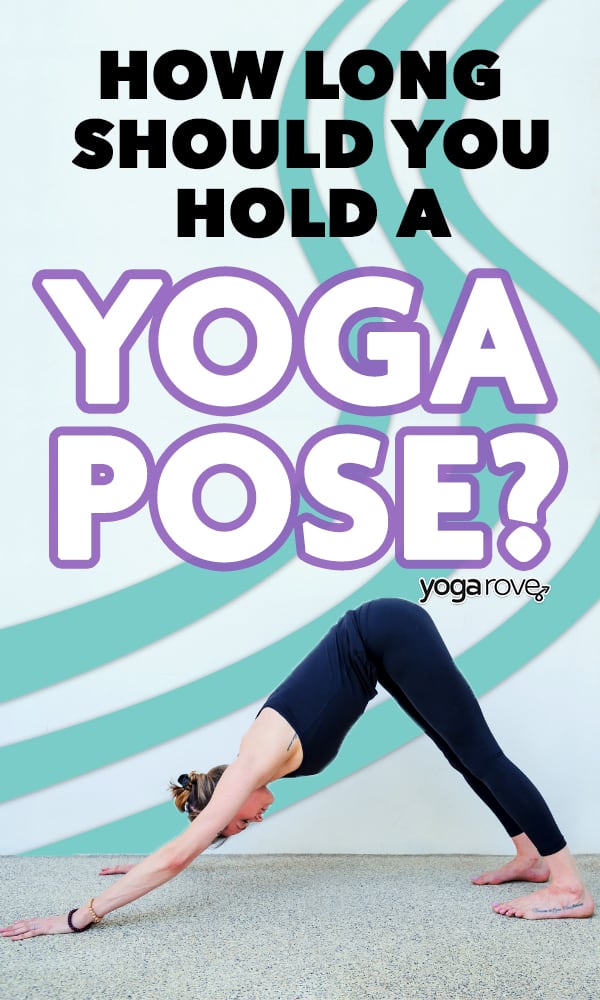
How long should you hold a yoga pose for? There is no set amount of time you need to hold a yoga pose. However, yoga poses are typically held anywhere from about a few seconds (1 -2 breaths) to upwards of 5 minutes depending on the type and focus of the yoga practice.
There are many different ways to practice yoga. It all depends on what works for you and because we are human, this can vary day to day. Some days you may want to have a quick yoga practice where you only hold a pose for a single breath and other days you may want to sit in one pose for 5 minutes for a more restorative yoga flow.
Quick Video for Beginners on How Long to Hold a Yoga Pose
Below is a video focused on this article that we have uploaded to our YouTube channel.
Factors that Determine the Duration You Hold a Yoga Pose
There are many determining factors to consider when deciding how long to hold a certain yoga pose for. Each pose should be held for a minimum of one full inhale and exhale and each breath should be long, slow and deliberate, making sure to fill your lungs completely before exhaling. The following is a list of key questions to ask yourself before or as you begin your practice.
How am I feeling?
Check in with yourself physically and mentally. Is your mind filled with racing thoughts of things that need to be done, something embarrassing you said or did? Things that are beyond your control? Is your heart beating fast or slow? Are your muscles especially tight anywhere? Are you tired and need to cultivate energy or are you fired up and need to calm down? Are you stressed or anxious and need to relax? If you are looking to calm down and relax hold poses for a longer amount of time.
Do I have any injuries?
If you are starting a new practice with an injury or coming back to practice after an injury, it is super important to pay attention to and listen to your body so that you don’t re-injure yourself. Yoga is the perfect place to be if you have an injury because there are so many modifications and variations of poses to take that protect whatever is injured. Depending on the type of injury, it could be beneficial to hold poses for a longer time to slowly and progressively stretch the affected muscles.
** remember to always get an okay from your doctor before you practice!
What are my short term yoga goals?
What do you want to see immediately from your practice? Weight gain? Weight loss? Do you want to become more flexible? Stronger? Gain muscle? Create leaner muscles? Do you want to work on patience or concentration? Maybe you want to learn to be present or just learn to breathe.
What are my long term yoga goals?
Are you looking for a lifestyle change? A natural way to help control anxiety and depression? A way to maintain a healthy weight and range of motion in your muscles? Are you looking to prevent injury as you get older?
What are my intentions for this practice?
Are you just waking up and want to create energy and a clear mind for the day? Are you looking to build muscle or to stretch them? Are you trying to relieve anxiety symptoms? Are you simply looking to sweat and workout? Are you getting ready for bed and need to relax? Holding poses for a shorter amount of time will create energy and is a really good workout, holding poses for a longer time will help relax you before bedtime.
How much time do I have to practice?
Making a point to come to your mat once a day is hugely beneficial. Maybe you have a solid hour and a half of time to go to a class or practice at home or maybe you have a crazy busy day and have a few minutes before falling into bed. Even if you spend 5 minutes in one pose, your mind and body will thank you.
How does my body feel?
How tight are your hips? Your legs? Shoulders? Do they hurt or are they just tight? The longer you hold your pose, the more flexible and stretched you will become. Your body will feel different each day and each practice and that is totally normal. Listen to your body and reasons with what it is asking for, maybe you need to sit longer in a pose or maybe you need to challenge yourself and connect your breath to movement.
Do I have any medical conditions?
Do you experience asthma or panic attacks? Are you pregnant? You can absolutely practice with most medical conditions (always seek a doctor’s approval first).
Benefits of Holding Yoga Poses a Long Time
There are numerous benefits to staying in and holding a yoga pose for a longer period of time, both physically and mentally.
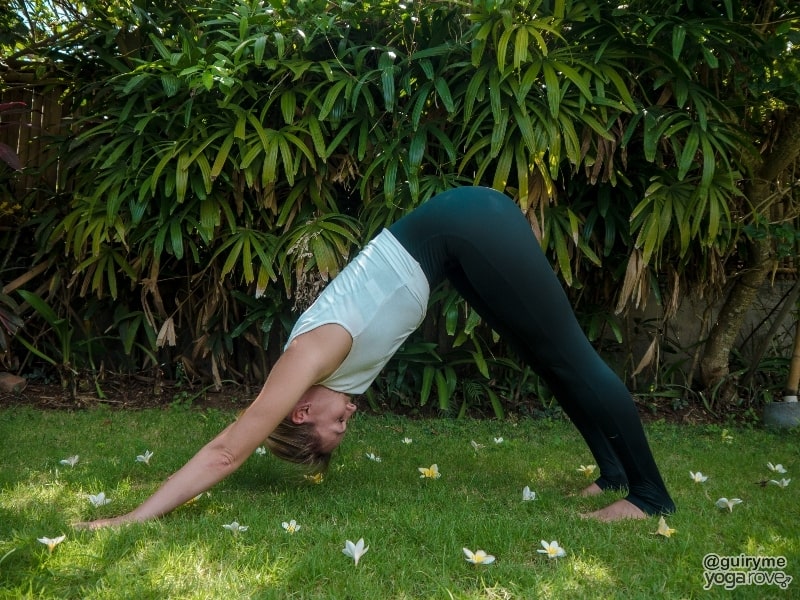
Benefits of holding poses for a longer time:
- Builds strength: As you stay in certain yoga poses, like Downward Facing Dog or Warrior 1, your muscles work together to maintain the pose. This creates little rips in the muscles, as it repairs itself it builds up creating strong, lean muscles.
- Creates stability and balance: The longer you can breath through a pose, the more stable and balanced you become.
- Gives you time to find the correct alignment for you body: When you hold a pose you have time to build the pose from the bottom up, creating an easeful practice.
- Gives time to explore the pose: You can try going deeper or go for a bind. Staying and holding yoga poses allows you to play around in a pose, finding new sensations and challenging variations.
- Lengthens muscles: When you hold poses like Seated Forward Fold or Reclined Pigeon, your muscles and connective tissue begin to gently stretch out and lengthen. This creates that long, lean look, but better than that it keeps your connective tissues happy and healthy and in working order.
- Creates flexibility: Yoga poses work to lengthen and strengthen muscles; a push a pull effect. This creates flexibility and maintains a healthy range of motion in your joints, preventing injuries as we go about our normal, daily lives.
- Generates curiosity: When you can stay in a pose for a longer amount of time you can really explore where you edge is and how deep you can go.
Benefits of Holding Yoga Poses Briefly
As with holding for a longer time, holding a pose for 1-2 breaths offers a different set of benefits. These benefits again cover both mental and physical benefits.
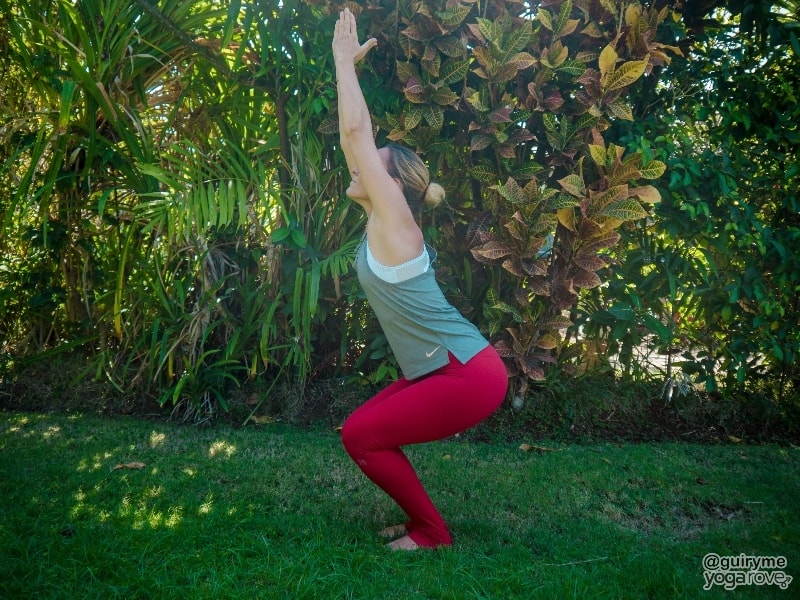
Benefits of holding yoga poses briefly:
- Improves cardiovascular health: When you’re linking poses together after just a few breaths, you will increase your heart rate, thus improving your heart health.
- Increases metabolism: As you move in a fast paced yoga sequence, your body heats up and your metabolism is activated.
- Burns fat: When you continually move from pose to pose your body will start to build muscle and burn fat.
- Increases stamina: As you flow and learn to connect your breath to movement, you will start to be able to keep moving for a longer period of time without feeling fatigued.
- Teaches you to enjoy the moment: When you’re in something so briefly, you start to appreciate the pose and get excited to come back to it the next time around.
How Long To Hold Yoga Poses for Beginners
As a beginner you should really listen to your body; some poses you may be able to hold for a long time, others might cause discomfort and you need to come out of after just one breath.
Whatever your body is telling you is perfectly fine. Yoga is a practice and the more you practice, the easier it becomes to stay in poses. Explore your practice and experience short and long holds. Mixing it up is hugely beneficial.
How Long to Hold Yoga Poses Based on the Style of Yoga
Based on the type of yoga you practice, there is a typical time you are meant to hold each pose to obtain the full benefits. Although each practice is completely modifiable, these are merely to be used as guidelines for your practice.
Yin Yoga: 5+ minutes per pose
Yin yoga targets deep connective tissue and fascia as well as your joints. Poses are almost exclusive practiced on the floor and focus on the hips, pelvis, inner thighs and lower spine.
Mental Benefits:
- Calms anxiety
- Lowers stress
- Balances the mind and body
- Clears energy blockages
- Teaches stillness
- Allows time for clarity
- Prepares us for meditation
- Improves insomnia
Physical Benefits:
- Gets deep into the tissue of your muscles
- Created flexibility
- Improves range of motion
- Improves circulation
- Triggers the parasympathetic nervous system
Vinyasa Yoga: 1-5 breaths per pose
Vinyasa yoga focuses on linking breath to movement and targets large muscle groups. It increases your heart rate improving your cardiovascular health which can sometimes lead to weight loss. Vinyasa yoga also helps you shift energy around your body.
Mental Benefits:
- Increases serotonin, norepinephrine, dopamine and endorphins possibly relieving symptoms of depression
- Relieves stress
- Connects your mind and body
- Improves concentration
Physical Benefits:
- Increases strength
- Increases stamina
- Improves cardiovascular health
- Improves skin quality
- Builds muscle
- Possible weight loss
- Detoxifies
Iyengar: 1-5 minutes per pose
Iyengar yoga focuses on proper alignment and posture in each pose, as well as breath control. This type of yoga is highly detail oriented.
Mental Benefits:
- Reduces stress
- Produces calming feelings
- Prepares us for meditation
- Improves attention to detail
- Improves concentration
Physical Benefits:
- Improves stamina
- Improves balance
- Improves strength
- Improves flexibility
- Can improve neck and back pain
Ashtanga: 5+ breaths per pose
Ashtanga yoga is another type of yoga that focuses on breath and movement. Ashtanga is a very disciplined practice- there are 5 ashtanga series and each practitioner must master each pose in a series before moving on to the next.
Mental Benefits:
- Improves concentration
- Improves patience
- Improves endurance
- Builds self trust and confidence
- Teaches commitment and discipline
- Reduces stress and anxiety
Physical Benefits:
- Builds strength
- Builds muscles
- Lowers blood pressure
- Improves flexibility
- Reduces body fat
- Defines muscles
Bikram: up to 1 minute per pose
Bikram yoga is a type of hot yoga held in a room upwards of 108 degrees. It is a 90 minute class and is made up of the same 26 poses.
Mental Benefits:
- Reduces stress
- Improves focus and concentration
- Improves mental endurance
- Builds mental stability and stamina
- May play a role in balancing hormones and other chemicals
Physical Benefits:
- Strengthens skeletal system
- Detoxifies body
- Stretches and strengthens muscles
- May lead to weight loss
- Stimulates nervous system
Power Yoga: 4 seconds to 40 seconds (1 – 5 breaths per pose)
Power yoga describes a type of yoga that mixes vinyasa with holding poses.
Mental Benefits:
- Improves focus
- Improves concentration
- Builds determination
- Reduces stress
- Relieves symptoms of anxiety
- May help relieve symptoms of depression
Physical Benefits:
- Builds and strengthens muscles
- Improves cardiovascular health
- Improves posture
- Detoxifies body
- Relieves physical stress and tension built up in your body
Restorative Yoga: 5- 20 minutes per pose
Restorative yoga is a relaxing class made up of long holds and passive stretching. This type of yoga uses props and offers deep relaxation throughout your body and into your muscles.
Mental Benefits:
- Calms the mind
- Reduces stress and anxiety
- May reduce symptoms of insomnia
- Promotes self awareness and compassion
- Promotes deep relaxation
- Develops patience
- Prepares you for meditation
Physical Benefits:
- Offers deep relaxation in your joints and muscles
- Improves flexibility and range of motion
- Releases tension in your body
- Balances immune system
- Balances nervous system
Remember to make your yoga practice work for you. Listen to your body and explore different types of yoga and breathing exercises. Some days you will need to push your limits and others you will need to slow down and take notice of what is happening in your mind and body. The more styles you practice, the more benefits, mentally and physically you will experience.
How to Integrate the Breath with Yoga
Breathing is a very important part of yoga. In order to gain the full benefits of a pose and to build a strong practice, you need to know how to properly integrate the breath while practicing physical postures.
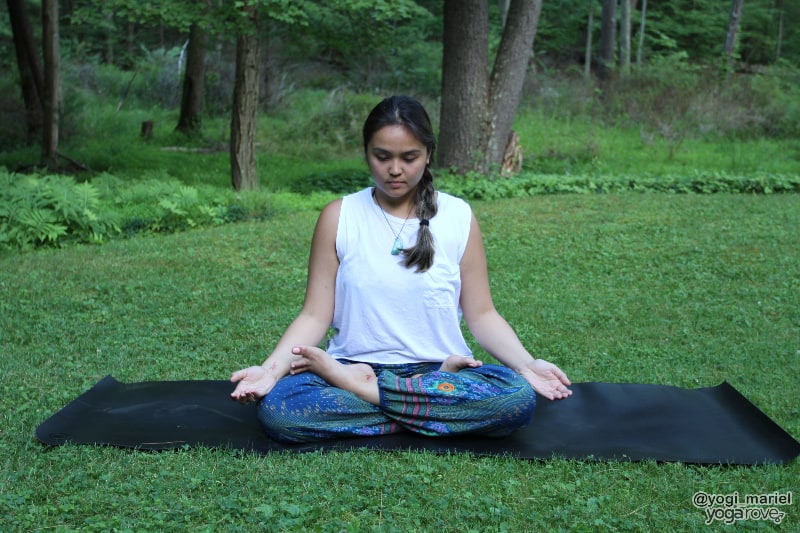
The Basics of Breathing in Yoga
The breath helps you in many different ways in your physical practice. Breathing helps you:
- get deeper into poses
- calm your mind
- slow your heart rate in a physically demanding practice
- fully integrate your mind and body together in your practice
You don’t want to be huffing and puffing throughout your entire routine. The goal is to use your breath strategically in order to keep it level throughout your practice.
While practicing a routine: Use your inhales and exhales to transition from pose to pose.
While in a pose: Use your inhales and exhales to deepen into s pose and keep track of the time in a pose.
Different Types of Breathing to Use While Practicing Yoga
No matter what style of yoga you are practicing, pranayama, or breath, is a very important part of your practice. There are styles of breath and different breathing exercises that can be practiced.
1. Ujjayi Breath/Ocean Breath
This is one of the most common types of breathing exercises practiced. Typically practiced during vinyasa or power yoga practices, it involves slowly and intentionally inhaling and exhaling, taking time to fill up and empty out your lungs completely while slightly constricting your throat to make a subtle “fogging the mirror” sound.
Ujjayi Breath is important when holding a pose for a long time and is equally important when flowing from pose to pose in different sequences. Generally when moving, an inhale indicates an upward movement and an exhale indicates a downward movement. While holding in a pose, this breath will calm your heart rate and slow down your breath, creating stability.
2. Nadhi Sodahana/ Alternate Nostril Breathing
This type of breathing is ideal to use before a vinyasa or power yoga class. It helps you clear your mind and body, creating space and clearity. It helps to expand the lungs to create a balanced breath through both nostrils.
You can practice alternate nostril breathing by using your right thumb to close your right nostril as you inhale deeply through the left then release your thumb and exhale through your right then switch sides. Repeat this 15-20 times.
3. Sithali pranayama/ Cooling Breath
This breath works great if you are practicing outside on a hot summer day or if you are practicing any type of hot yoga. You can practice this breath by rolling your tongue into a cylinder then close your mouth and hold your breath for five to 10. Exhale slowly through your nose. Repeat for 15 to 20 times.
4. Three Part Breath
Three Part Breath is great to practice with yin or restorative yoga. Start by inhaling through your nose. Fill your chest and lungs, then your upper abdomen and lastly fill your belly. When you exhale, release the breath from your belly, then your upper abdomen and finally your lungs and chest.
5. Kapalbhati/Breath of Fire
This type of breathing is mainly practiced during Bikram yoga and is used to warm up your muscles and to detoxify your body.
To practice Breath of Fire, sit up nice and tall, elongate your spine, and lift your head to the ceiling. Start to inhale through your nose then vigorously “pump” your exhale out through your nose while pulling your navel in repeatedly and in short spurts. Make your inhales and exhales the same in force, depth, and time.
Things to Remember
In short, the amount of time you hold a pose for depends on what your body is seeking and the type of yoga you are practicing. Some yoga requires a certain amount of breath in order to maximize the health benefits. There is no right or wrong number of breaths you have to take, just listen to your body. If something is painful, pull back but if you are ready to go deeper, go for it!
Good luck yogis! 🙂

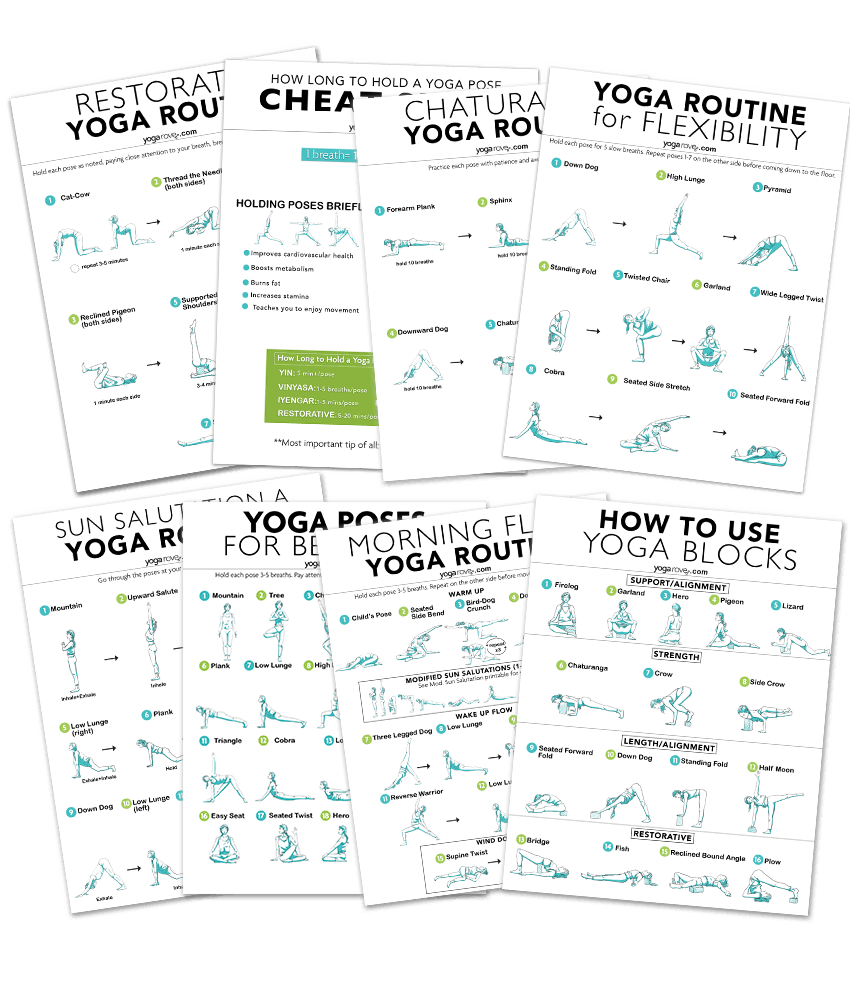
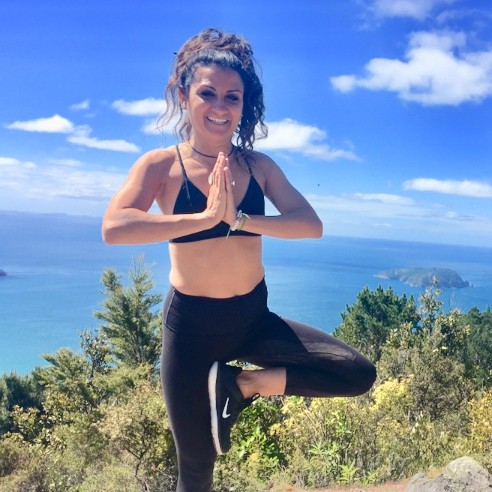
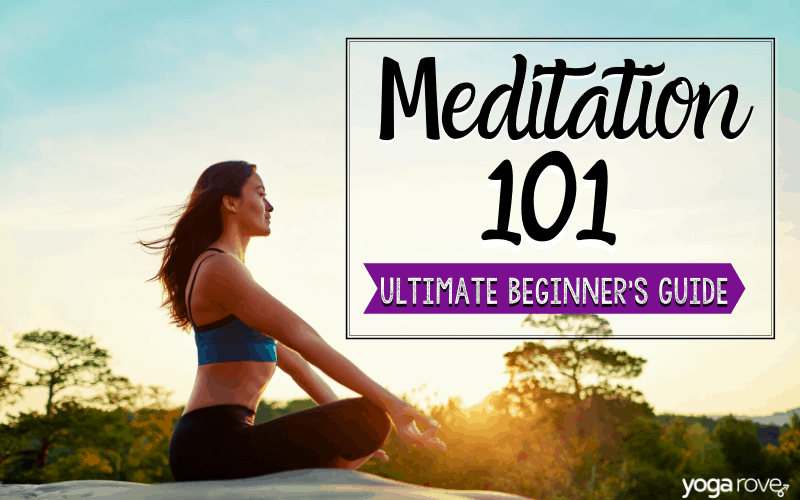
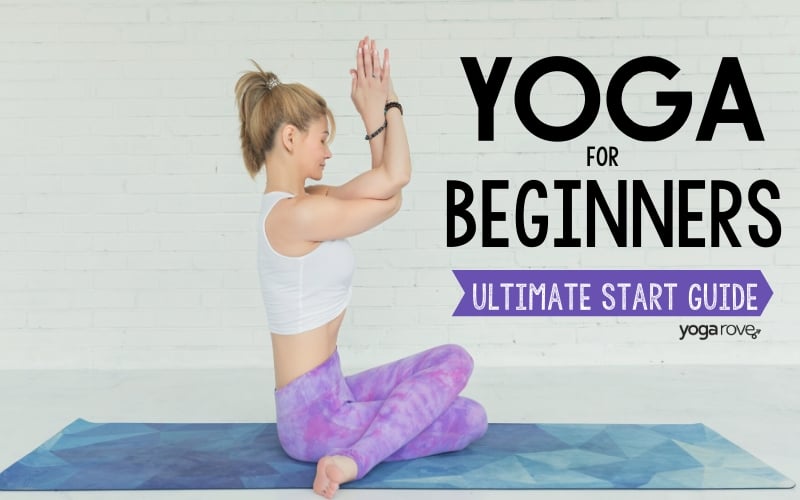
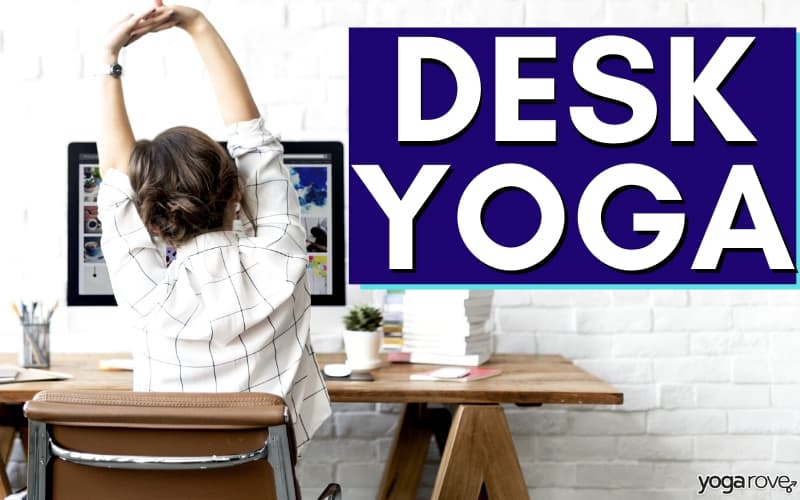
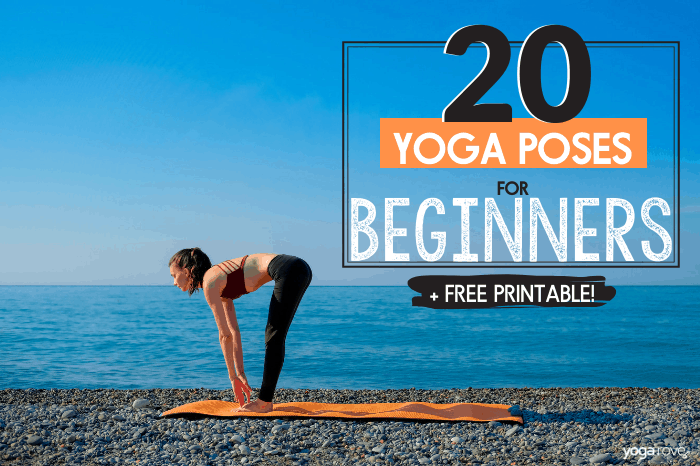
Newbie here..thanks for the info. I did a few poses and can tell a difference already!
Awesome! So glad to hear 🙂 The length of time you hold a pose can make a huge difference!
Gonna get started…Are there poses you can do sitting in an office chair?
Hi Sherrie, absolutely. We have an article going over different chair and seated yoga poses you might find helpful!
Great straight forward useful info showing how we can adapt yoga into our lives depending on our personality / people we are, adapting flexibility of mind body and spirit.
Glad you enjoyed it Sheila 🙂
Great infirmation, really helped me focus and understand my practice better. Xx
Glad you found it helpful Paul!
Thank you very much for all the detail. I am excited to start this new practice. I want to get everything mentioned in the article so now where to start, I will practice then all and see where my mind, body and soul will lead me.
Excited for you to get started Dessa! So glad you found it helpful 🙂